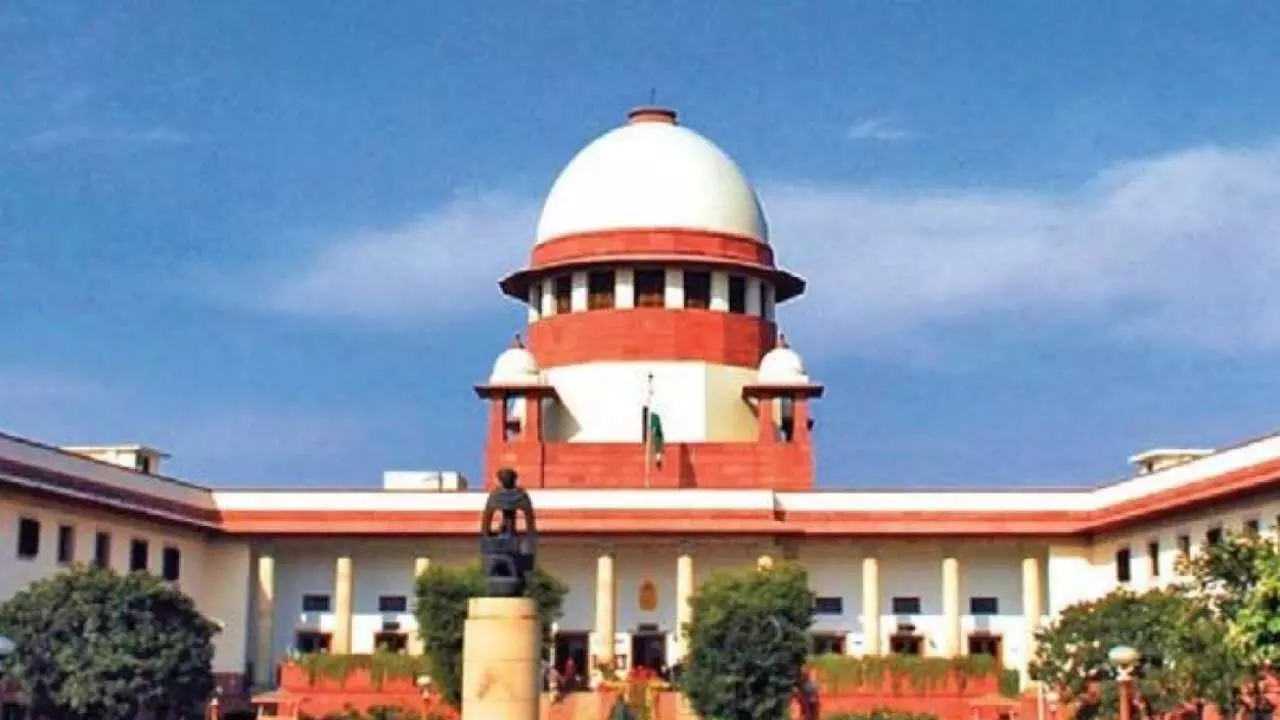
Uniform Civil Code: Centre says diverse laws an 'affront' to nation's unity; but court cannot direct Parliament to frame UCC
text_fieldsDelhi: The Centre, while informing the Supreme Court that the existence of diverse religions and sections of society following different property and marital laws is an 'affront to the nation's unity', also said that it is upto the Parliament to make laws, such as a Uniform Civil Code (UCC) and the courts cannot direct the Parliament to frame or enact any law.
On this basis, the union Law Ministry sought that the public interest petitions seeking court order to ask for UCC be dismissed.
The preliminary submission form part of recent affidavits filed by the ministry in response to petitions filed by Advocate Ashwini Kumar Upadhyay seeking the court's directions to the government to remove 'anomalies' and frame uniform divorce law and guidelines for adoption and guardianship of children.
However, the government took the stand that the role of making laws is exclusively that of the legislature and the court cannot give a 'mandamus to Parliament to make certain laws'. The affidavit also emphasised this as a matter of policy and argued that the petition of Advocate Upadhyay was not maintainable.
The Ministry also informed that a request on the subject to the Law Commission is pending which seeks to examine issues relating to the UCC and make recommendations, with due consideration to the sensitivity and in-depth study involved of various personal laws different communities.
In a written response, the ministry said: "It is submitted that the present writ petition is not maintainable in the eye of law since the petitioner, inter alia, is seeking direction against the Union of India to remove the anomalies in the ground of divorce and make Uniform Civil Code."
The response further added, "It is a settled position of law as has been held in a catena of judgments by this court that under our constitutional scheme, Parliament exercises sovereign power to enact laws and no outside power or authority can issue a direction to enact a particular piece of legislation. A writ of Mandamus cannot be issued to the legislature to enact a particular legislation."
It added that Article 44 of the Constitution is a directive principle requiring the state to endeavour to secure UCC for all the citizens, and the purpose behind Article 44 is to strengthen the object of "secular democratic republic" as enshrined in the Preamble of the Constitution.
In reference to Article 44, the ministry said: "This article is based on the concept that matters of inheritance, right to property, marriage, divorce, custody of minor children, maintenance, and succession, etc.: there will be common law. Article 44 divests religion from social relations and personal law. Citizens belonging to different religions and denominations follow different property and matrimonial laws which are an affront to the nation's unity."
It assured the court that it is conscious of the matter and that the 21st Law Commission conducted a detailed examination by inviting representations from several stakeholders. However, since the term of the 21st Law Commission expired on August 31, 2018, the matter will be placed before the 22nd Law Commission when the Chairman and members of the Commission are appointed. And 'as and when the report of the Law Commission in the matter is received, the government would examine the same in consultation with the various stakeholders involved.
As per personal laws in force under the Constitution, different religious and regional communities follow respective personal laws that govern matters like marriage, divorce, inheritance of property, custody of children etc and there have been calls from various quarters to bring the entire population under one uniform code. The Muslim Personal law has been the prime focus of this demand, and the Muslim leadership and masses, barring rare outfits within the community, stoutly oppose such moves perceiving them as attempts to deprive them of their distinct identity, as allowed under the freedom of religion under the Constitution.
(With inputs from agencies)



























